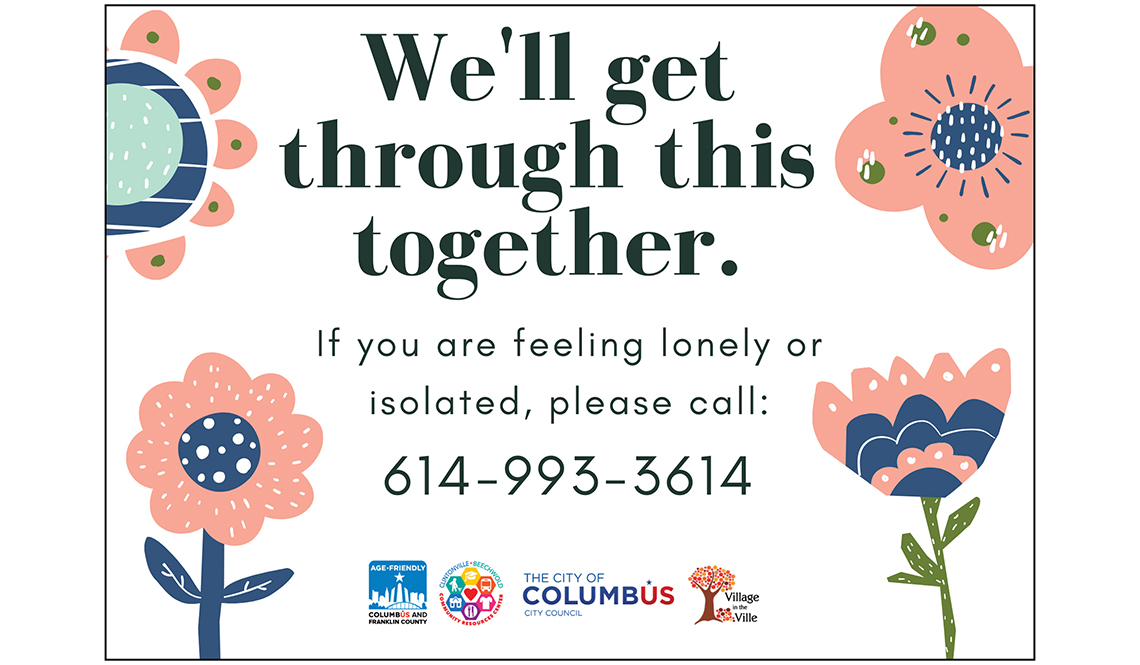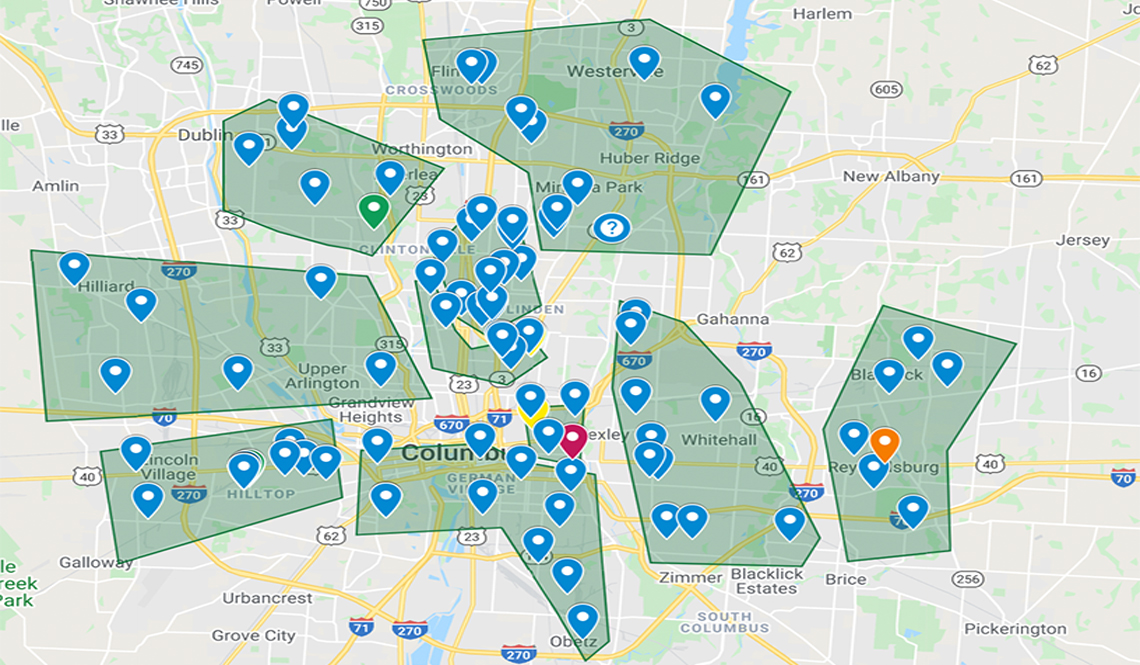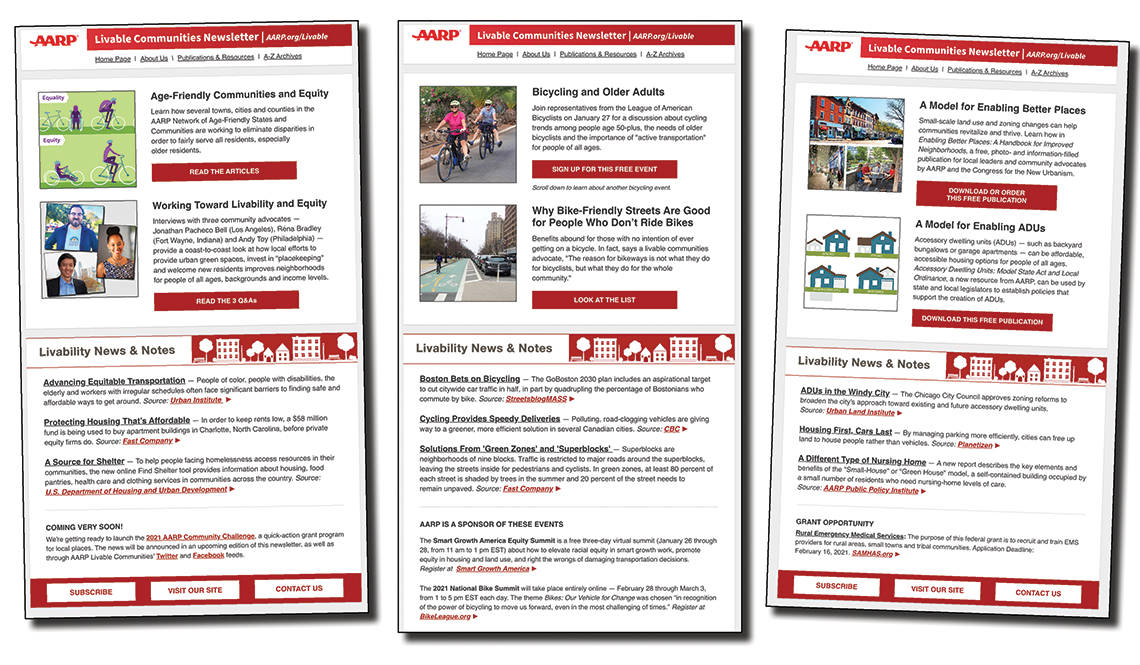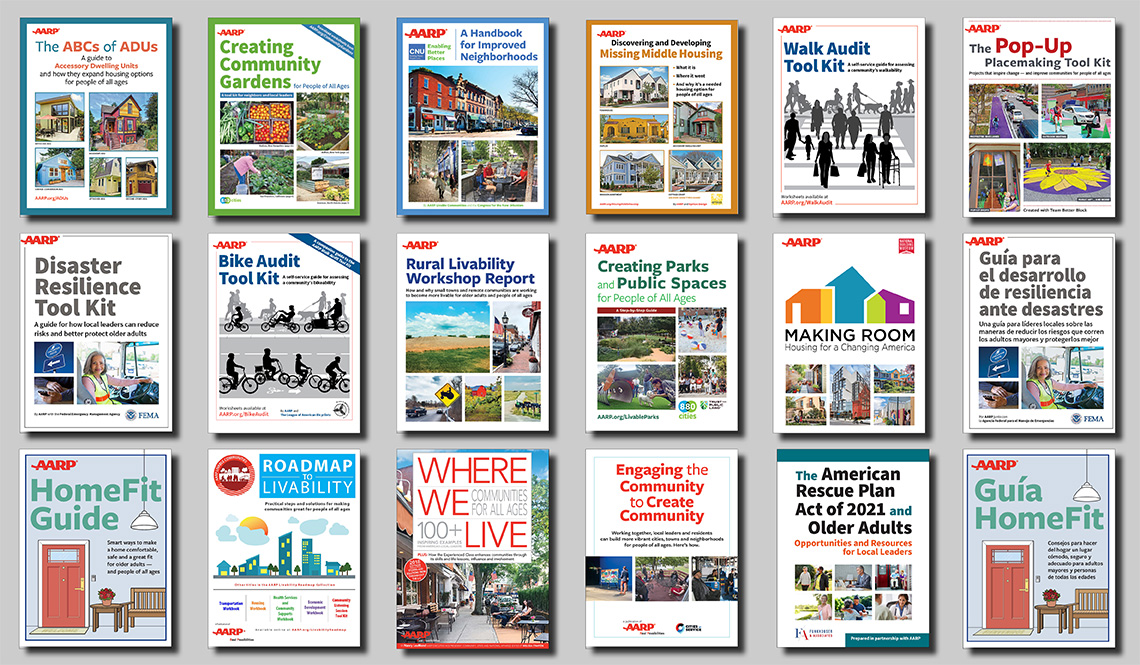Age-Friendly Columbus and Franklin County, Ohio, Responds to COVID-19
A look at how the city and county are serving and protecting its older residents
With nearly 900,000 residents, Columbus, Ohio, is the state's most populous city (and the second most populous Midwest city after Chicago). Columbus is also Ohio's state capital and it's the seat of Franklin County. Combined with the county, the area is home to about 1.3 million residents, 12 percent of whom are age 65 or older.
Columbus joined the AARP Network of Age-Friendly States and Communities in 2015. Franklin County followed in 2018. The region's age-friendly initiative is called Age-Friendly Columbus and Franklin County and is a program of The Ohio State University College of Social Work.
Community Representatives:
- Katie White, Director, Age-Friendly Columbus and Franklin County
- Marisa Sheldon, Assistant Director, Age-Friendly Columbus and Franklin County
- Christine Happel, Program Director, Village in the Ville
White, Sheldon and Happel explain how the community is helping its older residents during the coronavirus pandemic.
(Information provided to AARP on May 15, 2020)
The Challenge
“When COVID hit the front pages of Central Ohio newspapers, we anticipated older adults would have limited access to resources, resulting in increased social isolation and food insecurity. We also immediately saw that needs spanned across the entire county, not just Columbus.
The Focus Areas
“We began calling community partners we work with through our age-friendly work and others that are part of the aging network. The nature of age-friendly communities is to be connected to organizations and elders in order to have a continual pulse on needs, challenges and opportunities as they emerge. That was the case with our COVID emergency programs.”
The Response
“We designed, implemented and funded two COVID-19 emergency response programs — The Friendly Phone Line and Older Adults 'Necessity Bags' — with the Clintonville-Beechwold Community Resources Center (CRC) and Village in the Ville. Both programs were up and running within three business days and are a true reflection of collaboration between anchor institution partners.
Older Adults 'Necessity Bag'
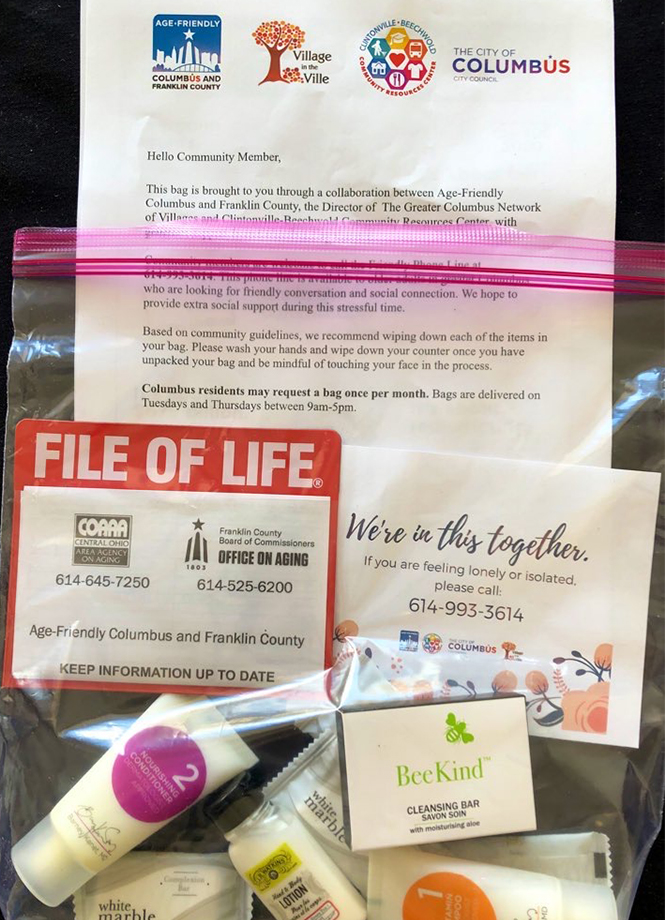
COURTESY AGE-FRIENDLY COLUMBUS AND FRANKLIN COUNTY
Among the items contained in a bag within the larger "Necessity Bags" are travel-size toiletries and educational materials, such as File of Life instructions (i.e. a list of contact information used in emergencies), community resources, notes of encouragement and Census 2020 information.
“For the Friendly Phone Line, CRC staff as well as social work students, staff and faculty volunteers from The Ohio State University College of Social Work speak by phone with older adults in the community. The phone line provides an opportunity for older people to socialize without the fear of contracting COVID.
“The Older Adult 'Necessity Bags' contain three to five days’ worth of shelf-stable food — depending on what’s available for purchase from the Mid-Ohio Foodbank — as well as other necessities, such as soap, shampoo and toilet paper.
"The bags are distributed by volunteers, community partners from the suburbs of Franklin County and village directors. We have also delivered bags to more than 30 low-income older adult housing complexes and we recently delivered bags to older individuals who are experiencing homelessness and seeking shelter at the YMCA.
“Through these partnerships we’re able to reach a much wider audience in both numbers and location and increase our impact. The necessity bags project was made possible through initial funding in the amount of $12,000 from the Columbus City Council. An additional $20,000 in funding from the Franklin County Board of Commissioners will help continue the program through the summer.
“A new, noteworthy collaboration is with the Ohio Hotel & Lodging Association. We were having difficulty securing toiletries for the bags, so I began asking around for contacts at hotels. Our city council shared the contact for the association. I called and left a message requesting a donation of shampoo, conditioner, soap and toilet paper. Joe Savarise, the executive director, called me back immediately and said 'We’re in, this is a no-brainer!' From that, he sent the request to all the hotels in the area. Twelve responded that they could donate. Their items were a phenomenal addition to our bags."
Response Partners
The Results, Thus Far
"From March 16 through May 5, during more than 840 phone calls, volunteers spent 66 hours speaking with older adults who engaged with the Friendly Phone Line project. Callers appreciate having someone to talk to during this lonely period and often express the concerns they have about COVID. Everyone is happy just to have someone to share their anxieties with and connect over similar feelings and experiences.
"Through the efforts of our staff and 150 volunteer hours, we’ve delivered more than 1,200 necessity bags across 43 zip-codes. More than 15,000 pounds of food was moved and packed into bags. From our partnership with the Ohio Hotel & Lodging Association, we collected over 5,000 items for adding to the necessity bags.
"Residents have been so grateful for these items. One told us, 'It was like Christmas going out there and finding that package.' Another said she had been calling everyone and no one could help her, so she was feeling 'in a dark place.' She thanked the volunteers and credited them for 'lighting her candle.'"
Research by Shosanna Preuss | Article published May 2020
- Learn about the AARP Network of Age-Friendly States and Communities
- Check out the network's Member List
- Connect with AARP Ohio
- Find more Age-Friendly Responses to COVID-19
Stay Informed
The weekly, award-winning AARP Livable Communities e-Newsletter provides local leaders with information and inspiration for making their town, city or neighborhood more livable for older adults and people of all ages. Subscribe today!
AARP.org/Livable
Enter a topic, name, place, etc.

